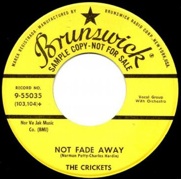 The producer of a show that is syndicated to public radio stations across the U.S. writes:
The producer of a show that is syndicated to public radio stations across the U.S. writes:
“A supervisor with whom I have to work has decided that even though we have several dozen beautifully timed 59-second music beds that we use in our breaks, suddenly it’s a MAJOR priority that we replace them with music beds that fade out. His main reason: ‘NPR shows all do it that way.’
“Network programs have 59-second music beds placed within them to allow stations to insert content if they wish, or to roll, as is, until they rejoin. “Do you think it sounds better for a music bed to time out to :59, with a defined start and end — basically a self-contained 59-second piece of music — or for the music to fade out to fit the time requirement? Or does it even matter?”
If what the listener hears is a 59-second piece that ends “cold” and then immediately abuts the next element, that would be ideal. Allowing the music to fade to fit the time is less professional (i.e., much easier for the radio station but at the expense of the listener’s enjoyment).
Think about a network TV show. Which would you as a viewer enjoy more:
1) Commercial ends….Then an “NBC” placard is on-screen for five or six seconds….Then the next program begins.
or
2) Commercial ends, then the next program begins without any delay.
For most people, #2 is preferable.
That’s also why on a newscast, the newscaster times her closing words to be spoken immediately before the broadcast ends…rather than, say, humming into the microphone for 10 or 15 seconds because it was too much trouble to time out her presentation.
As for the guy’s reason (“NPR shows all do it that way”): And if all the other NPR shows jumped off a bridge….?
Having worked with NPR, I can assure you they certainly do not require the programs it airs to fade their music beds. They do it that way because:
A) It’s easier.
and
B) They’ve never really thought about it.
I’m not criticizing programs that do fade their music beds (known as “fill music”). For this kind of use, I don’t think it’s a big deal one way or the other.
And the NPR program producers with whom I’ve worked certainly are not lazy or uncaring. They’re as overworked as are all radio people everywhere, commercial and non-commercial alike.
But the idea that your program has produced a collection of music- appropriate pieces that exactly fit the required length and this “supervisor” is insisting on replacing them with more generic cuts that arbitrarily will be faded as needed….
Well, that strikes me as pretty darn stupid.
A 59-second piece is meant to end at 59 seconds. It’s structured that way. But a longer piece that is faded at 59 seconds is incomplete and unfulfilling to the listener.


Comments on this entry are closed.
Can one say — “DUMB ASS?”
when I see :58:02 on a clock I feel like I should be doing something… That when you hit Rhinoceros’ Apricot Brandy to sting out at the top of the hour. It was actually :58:02 and a half. sting it baby, sting it.